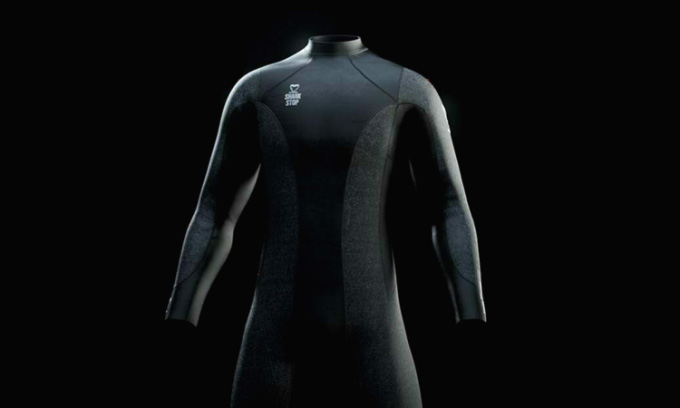The Shark Stop thermal swimsuit is made from very sturdy materials that can resist cuts, punctures, and limit injuries, thereby reducing blood loss.

The Shark Stop thermal swimsuit can withstand shark bites. (Photo: Shark Stop)
The Australian company Shark Stop introduced a thermal swimsuit designed to prevent shark bites, as reported by Mail on January 25. The material of the swimsuit is made from ultra-high molecular weight polyethylene nano fibers, designed to be used in conjunction with traditional neoprene rubber. According to Shark Stop, the new material not only has excellent puncture, cut, and abrasion resistance but also has a durability-to-weight ratio that is 50% higher than Kevlar and 8 to 15 times stronger than steel. It has been used in items such as bulletproof vests.
Flinders University tested the new material with great white sharks off the coast of the Neptune Islands in South Australia, yielding positive results. “The material is incredibly sturdy, yet very lightweight and not significantly affected by water,” said Associate Professor Charlie Huveneers, head of the Southern Shark Ecology team.
Huveneers’ research findings were published in a scientific journal in 2019. He also noted that the new material was developed to resist cuts and punctures, limiting injuries and thereby reducing blood loss, which is the leading cause of death in shark attacks.
The demand to reduce the risk from sharks while not harming them is increasing. “Shark bites can lead to serious physical, mental, social, and economic consequences. Therefore, it is crucial to continue developing new methods to reduce the risk of shark bites and ensure their effectiveness,” Huveneers stated.
With the Shark Stop thermal swimsuit, the new material panels are combined with bio-neoprene in areas of the body that are typically severely injured by shark bites, such as around the femoral artery. The new product is not significantly heavier than traditional neoprene thermal swimsuits, while still being quite flexible.


















































